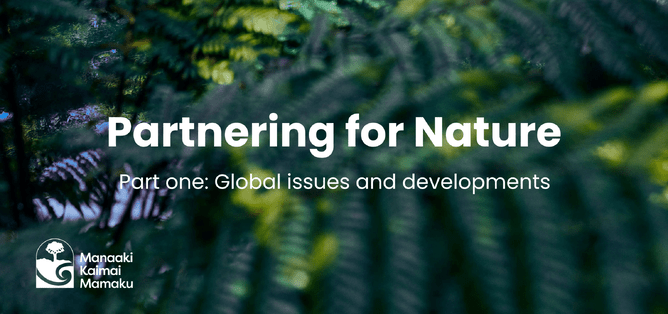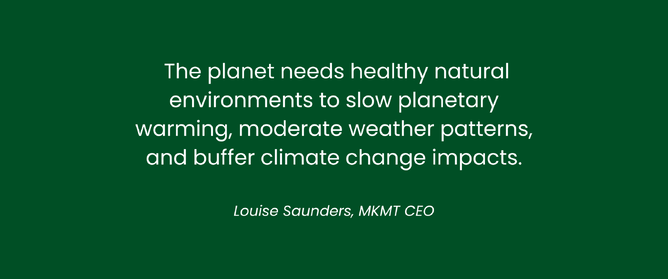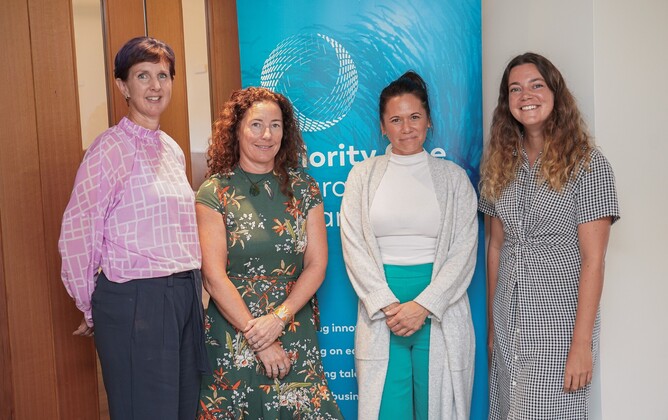In this three part series, we delve into why now is the time for New Zealand businesses to invest in nature.
In part one, we look at the global issues and developments.
By Louise Saunders, Manaaki Kaimai Mamaku Trust CEO
The issues we currently face
Recent technology developments allow us to rapidly observe, measure and analyse the planet and its natural systems. We can watch severe weather events, changing ocean currents, deforestation and desertification in real time.
We now know climate change and nature loss are inextricably connected.
The planet needs healthy natural environments to absorb extra carbon dioxide, reduce planetary warming, moderate weather patterns and buffer climate change impacts. Slowing climate change, and protecting ourselves from the worst effects of climate extremes, is impossible unless we reverse nature loss.
Our remaining natural environments are so depleted and degraded that decarbonisation alone will be fruitless; we have to match our ‘carbon-positive’ initiatives with ‘nature-positive’ action.
Major global players see nature loss as a risk
The international awareness of nature-related risks is growing quickly as those risks are actual and measurable impacts. Financial institutions and nations are realising economic growth and the wellbeing of communities are dependent on healthy natural environments. Global prosperity is threatened when natural systems fail and we're seeing it daily in our newsfeeds.
The World Economic Forum's most recent Global Risk Report lists biodiversity loss as the third most pressing global economic risk, noting that more than half of global GDP depends on nature while 40% of global natural resources are in decline.
International financial institutions are signing up to The Finance for Biodiversity Pledge, established to encourage global leaders to “take responsibility and contribute to protecting and restoring biodiversity through their finance activities”.
Nearly 200 nations, including New Zealand, signed up to the UN’s Kunming-Montreal Global Biodiversity Framework commitment to prepare national biodiversity strategies and action plans. Our major trading partner, the European Union, has a Biodiversity Strategy which requires the European Commission to assess the impact of trade agreements on biodiversity. The first EU corporate sustainability reports will be released this year.
China and India are progressing regulations to enforce mandatory ESG (Environmental, Social, Governance) reporting for their biggest businesses, with trickle effects to all the businesses in their supply chains. Increasing numbers of big businesses are assessing their supply chains for environmental indicators.
At a time when international trade relationships are in a precarious state, supply chain resilience has become a key consideration. National and multi-national businesses are factoring in the significant and material risks of climate change and nature loss disruption on business and returns.
Standardised global reporting
To help businesses measure and report on these risks, international guidelines for climate and nature financial disclosures have been developed. These guidelines provide businesses with standardised methods for disclosing material climate and nature-related risks to their operations.
Lyttleton Port Company was the first NZ business to complete their nature-related financial disclosures report in 2024 and there is strong interest from NZ’s leading businesses to follow their lead.
Aotearoa is heavily dependent on both nature and international trade for our wellbeing and prosperity.
With such strong signals from the international marketplace, it makes sense that we will be an early adopter of mechanisms for investing in nature restoration.
In part two we will look locally - what's happening in Aotearoa.
Louise first presented a version of this at a Priority One Partnering for Nature workshop.
L-R: Louise Saunders Manaaki Kaimai Mamaku Trust, Michelle Elborn Bay Conservation Alliance, Marissa Nikora Priorty One, Gemma Coates Sustainable Business Network




